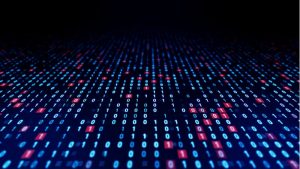Wisconsin’s Department of Workforce Development (DWD) has selected Flexion to identify and implement technology solutions for modernizing the states’ unemployment insurance (UI) system.
The National Science Foundation (NSF) is investing $1 million in research and development (R&D) to create open-source first responder robots.
Two Kennesaw State University (KSU) professors have launched a program to teach K-12 students cybersecurity basics through virtual reality video games.
Better data and guidance can help states reinvest more than $800 million from fiscal year (FY) 2015-2019 in adoption savings – the result of 2008 legislation to increase Federal reimbursement of state assistance payments to adoptive families.
The University of Wisconsin-Green Bay (UWGB) Division of Information Technology (GBIT) has undergone a restructuring to make better use of resources to support students.
The Federal Communications Commission (FCC) is moving to prevent robocallers calling 9-1-1 call centers and proposed a rule to fulfill a requirement from a 2012 law to create a public Do-Not-Call list for Public Safety Access Points (PSAPs).
New York state has launched the Broadband Mapping Consumer Survey to assist in its first-ever in-depth statewide mapping study of broadband to identify the availability, reliability, and cost of high-speed broadband services across the state.
Manassas City Public Schools in Virginia are using robots armed with sanitization technology, to lead their efforts to eliminate the spread of COVID-19 and protect students and staff throughout the 2021-2022 school year. The school system is partnering with UBTECH to deploy ADIBOT robots for the new school year.
The Federal Communications Commission (FCC) received a mostly favorable review from the Government Accountability Office (GAO) on how the agency is proceeding with improving broadband service access maps, but GAO also flagged that the FCC will face technological challenges with integrating disparate sources of broadband service location data.
With the rise in distance learning, the 2020 school year highlighted the need for in-home Internet access for K-12 students nationwide. New research from the National Center for Education Statistics found that household internet access for K-12 students is closely tied to household socioeconomic status.













